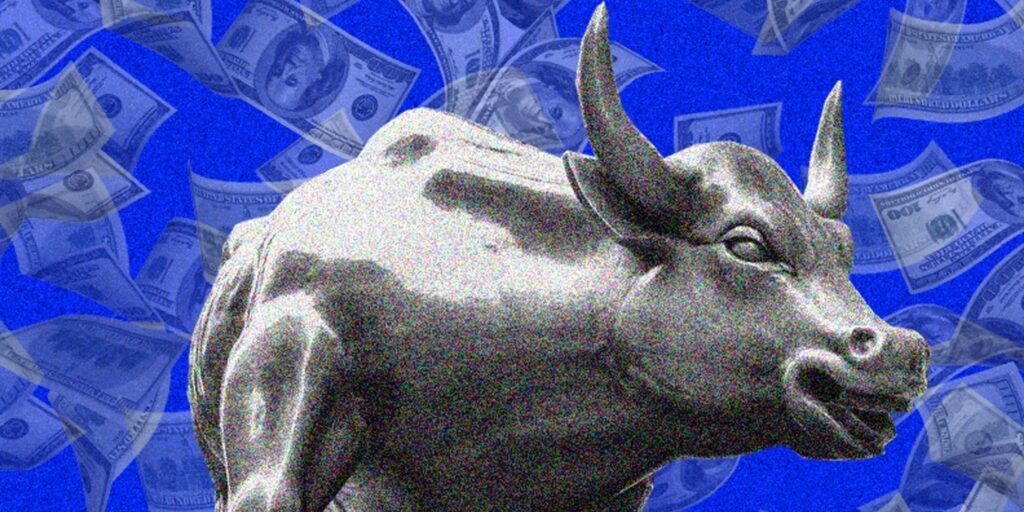- America's top 1% was responsible for a record-high combined net worth of $44 trillion in the fourth quarter of 2023, Fed data cited by CNBC says.
- All those gains come from the monster rally in stocks that closed 2023.
- The Fed data also highlights how concentrated the market gains are, with the top 1% owning half of all individually held stocks.
The top 1% of Americans now have a combined net worth above $44 trillion for the first time. And they owe it to a booming stock market.
New data from the Fed shows that those with net-worths over $11 million saw their wealth balloon by an additional $2 trillion in the last quarter last year, CNBC reported.
And all those gains come from the monster rally in stocks that closed 2023.
While real estate values went up slightly, the value of corporate equities and mutual fund shares held by the top 1% soared to $19.7 trillion from $17.65 trillion in the third quarter. The value of the cohort's privately held businesses went down by enough to erase gains from any assets outside of the stock market.
Towards the end of last year, the markets embarked on a turbocharged rally after a cool CPI print gave investors hope that the Fed had reached a peak in their rate hikes. Those bumper gains have only boosted rewards that began in the market boom during the pandemic. Since 2020, the top 1% has added $15 trillion to their coffers, an increase of 49%.
And the recent gains have fattened the wallets of those beyond just the top 1% — last year, Americans saw their total yearly net worth hit a record $156.2 trillion. It's what JPMorgan has described as Americans' "love affair" with the stock market, with US households and nonprofits quadrupling their equity allocations over the past 40 years to a near-record high of 41%.
The latest Fed data does however highlight that the market gains remain concentrated in a thin tier of wealthy individuals. The top 10% of Americans own 87% of individually held stocks and mutual funds, the Fed data reportedly said. And the top 1% own half of all individually held stocks.
